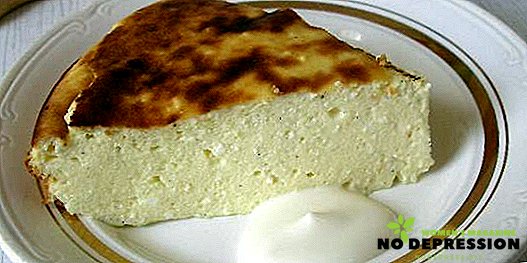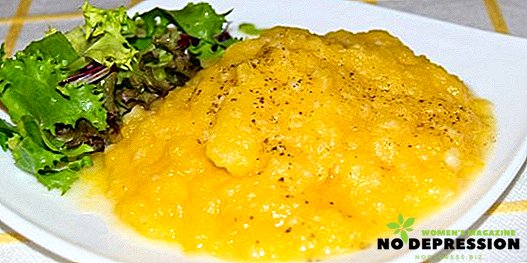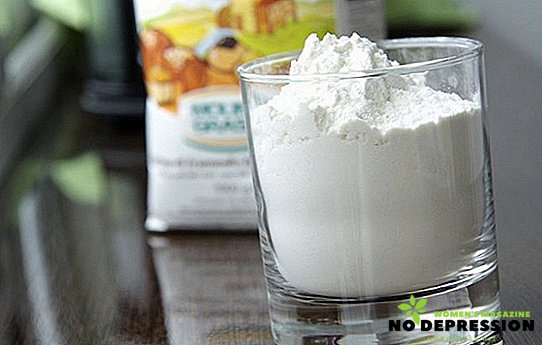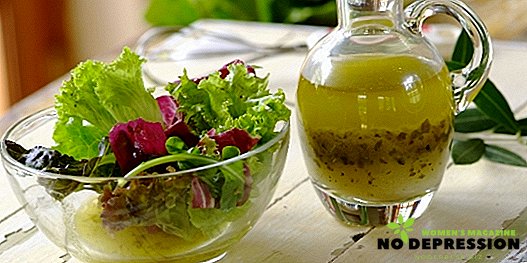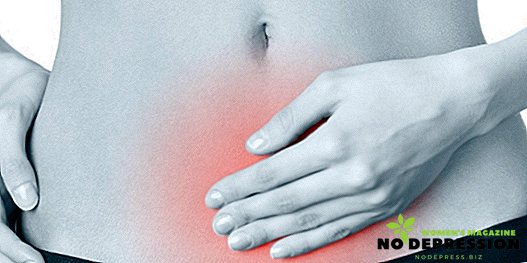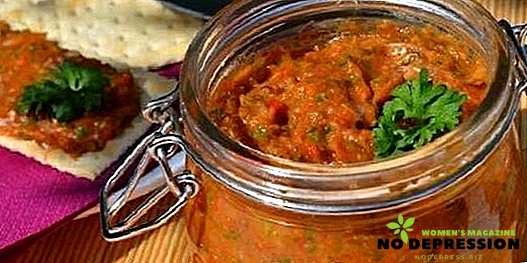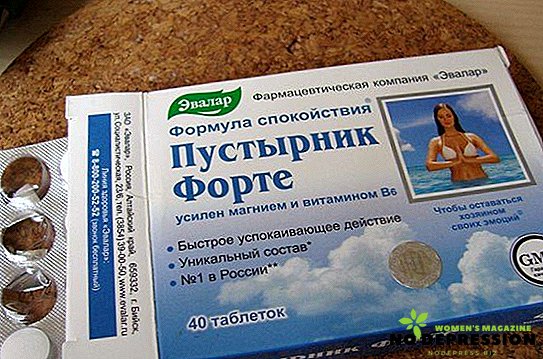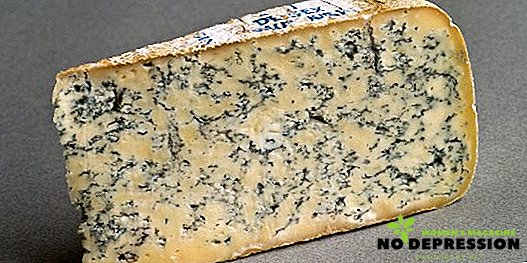If a person has elevated cholesterol in the blood, he has a high risk of developing heart disease and blood vessels, which are caused by the formation of cholesterol plaques on the vascular endothelium. Such patients are recommended to adjust nutrition to lower cholesterol, lower the body mass index and begin to exercise regularly.
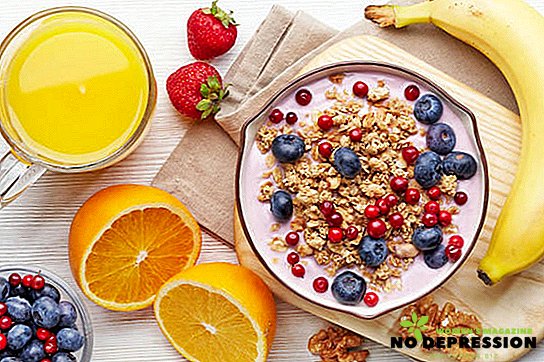
What is cholesterol: understand in more detail
Cholesterol is naturally a fat-like substance. The human body produces up to 80% of this substance on its own, and cannot exist without cholesterol. And all because cholesterol synthesizes steroid hormones, is involved in the formation of vitamin D, which is very important for nerves and digestion. In addition, cholesterol is a valuable component of all cell membranes.
In the body cholesterol can exist in the following forms:
- poor with low density;
- good - with a high level.
It is the "bad" cholesterol that leads to the dangers that the doctors are talking about: the formation of plaques, the blockage of blood vessels, problems with blood circulation.
The main purpose of nutrition with elevated cholesterol is to reduce the level of harmful and at the same time maintain a high level of beneficial cholesterol. Maintaining a balance between these 2 varieties is a guarantee of normal hormonal levels, a good metabolism and healthy blood vessels.
What threatens to increase "harmful" cholesterol?
With an increase in the level of harmful cholesterol, serious problems are observed with the heart, liver, gastrointestinal tract organs, etc.
Atherosclerosis
Complications may be as follows:
- development of a heart attack due to blockage of blood vessels;
- intestinal ischemia;
- impotence in the blockage of the genital veins;
- trophic ulcers, gangrene;
- strokes, cerebral hemorrhage;
- paralysis or death in severe cases.
Cholelithiasis

The presence of "harmful" cholesterol in the absence of proper treatment can cause the formation of hard gallstones. Over time, an inflammatory process may occur in the organ, which will require surgery.
Hypertension
Elevated cholesterol leads to increased blood pressure. As a result: hypertension and the risk of hemorrhage.
Obesity
With this problem, lipid metabolism is disturbed, which leads to the deposition of fatty deposits and further obesity. Those who are inactive are especially vulnerable.
Pathology of the reproductive system
The negative effect of consuming large amounts of products with harmful cholesterol can cause serious disruptions in the reproductive system.
The blockage of the arteries that feed the pelvic organs impairs blood supply to the prostate, the prostate tissue undergoes hypoxia. As a result, erectile disruptions and inflammations appear. Further, the appearance of erectile dysfunction and prostate adenoma is possible.
The basic principles of diet
Diet
Requires fractional meals in small portions, but at least 5 times a day.
Temperature
The temperature should be normal - there are no restrictions on this issue.
Salt
The maximum amount of salt per day is not more than 5 g. Food should be unsalted. And all because salt leads to fluid retention in the body, which puts additional stress on the cardiovascular minute.
Liquid
Per day you need to use about 1-1.5 liters of water to unload the cardiovascular system, to cleanse the urinary system.
Alcohol
From the reception of alcoholic beverages, especially strong, it is desirable to refuse. But some doctors recommend in the absence of contraindications to take 50 ml of red wine every evening. It contains flavonoids, which have an antioxidant effect, that is, a little of this drink will help to protect blood vessels from the formation of atherosclerotic plaques.
Weight
People suffering from extra pounds, it is necessary to normalize their weight, because the extra "fats" is an additional source of cholesterol. Also kilograms impede the work of blood vessels and the heart.
Proteins, fats and carbohydrates - what should I consume?
It is important to remember that you need to properly form your diet, so that there are proteins and fats, and carbohydrates. But with the inclusion of the wrong products in the body with them will come "harmful" cholesterol.
Squirrels
Nutritionists recommended to take them from products such as:
- a fish;
- shrimp;
- lean veal meat;
- chicken breast;
- turkey meat;
- legumes.
These products are enough to prepare daily meals.
Carbohydrates
But carbohydrates should take up most of the diet. The following products are useful for those who suffer from high cholesterol:
- cereal porridge;
- berries, vegetables;
- Rye bread.
 The benefits of these carbohydrates are that these foods contain large amounts of dietary fiber.
The benefits of these carbohydrates are that these foods contain large amounts of dietary fiber.
In turn, they reduce the amount of harmful cholesterol in the blood, help clean the intestines, absorbing unwanted fats. In addition, due to the large content of vitamins and minerals, the metabolism is normalized.
Fat
They are recommended to be included necessarily in a diet even at high level of cholesterol. The main thing is not to consume saturated fats, which can cause a deterioration of the situation.
Preference is to vegetable fats:
- sunflower;
- olive;
- sesame;
- corn, etc.
What foods are prohibited with high cholesterol?
The first are fats of animal origin - they are the source of "bad" cholesterol. You should also refuse from carbohydrates that are easily digested, turning into fats, and, as a result, into cholesterol. You should not eat foods that activate and excite the nervous and cardiovascular systems.
In general, it is recommended to steam, boil or bake foods. Fried foods should be excluded, because in the process of frying not only carcinogens are produced, but also low-density lipoproteins, which can also cause plaques.
Forbidden products include:
- Fancy fresh bread, products made from yeast and puff pastry, pancakes, fried pies, pancakes, pasta made from varieties of soft wheat varieties (contain easily digestible carbohydrates);
- high-fat whole milk, fatty cottage cheese, sour cream, cheese;
- fried and boiled eggs (especially the yolk is a source of saturated fat);
- soups with concentrated and fatty fish and meat broth, mushroom broths;
- fatty meats (lamb, pork), poultry (duck, goose), chicken skin, especially fried, sausages, wieners;
- fatty fish varieties, caviar, salted fish, canned food, fried fish on margarine and solid fats;
- squid, shrimp;
- natural coffee brewed from grains (when cooking fats come out of the grains);
- fried vegetables, including chips, french fries, etc., nuts, coconut;
- mayonnaise, sauces, including sour cream or cream.

What can be consumed without fear?
In products that need to be consumed with high cholesterol, must contain a large amount of saturated fatty acids, because in their composition a large amount of "healthy" cholesterol. First of all, it concerns fish, which consists of omega-3-unsaturated fatty acids. Also, fish is a source of vitamin D.
A large amount of soluble fiber (oatmeal) increases the level of high-density lipoproteins. Fresh vegetables and fruits in large quantities contain antioxidants that strengthen the vascular walls. Also many antioxidants (vitamin E) in nuts.
The list of approved products include:
- dried bread, and it should be made from wholemeal flour, bran bread, pasta from durum wheat;
- vegetable oils in any quantity, with the exception of palm oil (salads refilled with vegetable unrefined oil);
- vegetables: potatoes, cauliflower and cabbage, carrots (removes toxins), lettuce (source of folic acid), pumpkin, zucchini, beets;
- lean meat and poultry (rabbit, turkey and skinless chicken, veal, lean beef);
- seafood: scallops, oysters, mussels and crabs sparsely;
- fish, especially sea, low-fat varieties (baked and boiled);
- legumes, which are one of the main sources of vegetable protein;
- nuts, in the composition of which there are phospholipids, lowering the level of "bad" cholesterol;
- onions and garlic, contain a lot of vitamin C, protect the vascular walls, remove calcareous deposits and fat from the body;
- oatmeal, cereals, puddings from other cereals (cereals must be cooked in diluted milk);
- low-fat milk, and low-fat cottage cheese, kefir, yogurt;
- weakly brewed tea, coffee drink with milk, decoctions of vegetables, rose hips, compotes.

The need for diet and the consequences of its absence
Dieting regulates high and low density lipoproteins, thereby reducing the level of "bad" cholesterol. The correct table with a high level of cholesterol will allow you to normalize its content, not taking drugs. In addition, if the diet is observed, the vessels are cleaned and remain “clean” for a long time, there are no problems with blood circulation.
A large amount of antioxidants in recommended products with high cholesterol slows down skin aging, prevents the development of pathologies of internal organs, increases vitality.
But in the absence of the correct "therapeutic diet" atherosclerosis of the vessels may begin. As a result of this disease, plaques appear on the walls of the vessels, narrowing the lumen of the arteries of the veins. This threatens both the development of circulatory disorders and such complications as heart attack, stroke, etc.
Also, elevated cholesterol is one of the factors for the development of hypertension and cerebral atherosclerosis (memory loss, visual disturbances, tinnitus, sleep disturbances, dizziness).
According to experts, almost every third heart attack is directly related to this phenomenon. In addition, excess cholesterol can accumulate not only on the walls of the arteries, but also on other organs, including the brain. This can cause serious pathologies.
Thus, diet with high cholesterol is a necessary measure for successfully combating the disease. If you know how to reduce the performance of this substance in the blood, you can ensure that they will be normal for a long time. Otherwise, you can not avoid complications that may be serious chronic diseases.
Recommended Diet for High Cholesterol
Some believe that with high cholesterol, a diet will ban many foods. However, this is not the case. To verify this, consider the approximate menu for the week. By sticking to it, you will protect your health and will not suffer from scarce products.
Breakfast
The following options:
- Cheesecakes, baked in the oven, a glass of juice, 1 apple.
- Vegetable salad, to be filled with olive oil, toast with jam, green tea, 1 grapefruit.
- Oatmeal with dried fruits, a glass of herbal tea.
- Wheat and pumpkin porridge, any fruit, cottage cheese with sour cream (low-fat).
- Vegetable salad, seasoned with sunflower oil and lemon juice, toast with jam, tomato juice.
Lunch
The menu is easy to diversify the following dishes:
- Vegetable soup, a couple of steamed patties, a glass of onion and bread.
- Pea soup, a small slice of cheese, a slice of bread.
- Rice soup, tuna, a little ice cream.
- Seafood, vegetable salad, 2 slices of bread.
- Chicken meatball soup, any kind of fruit, a slice of bread.
Dinners
The following options are possible:
- Rice porridge, beans, vegetables, steamed.
- Vegetable ragout, scrambled eggs, 1 cup of yogurt or kefir.
- Baked sea fish, fresh vegetable salad with olive oil. Oatmeal, canned tuna salad, apple.
- Fish stew with tomatoes, 1 slice of bread, 1 cup of nonfat kefir.
Tip: you can immediately make a menu for the week, buy all the products.


